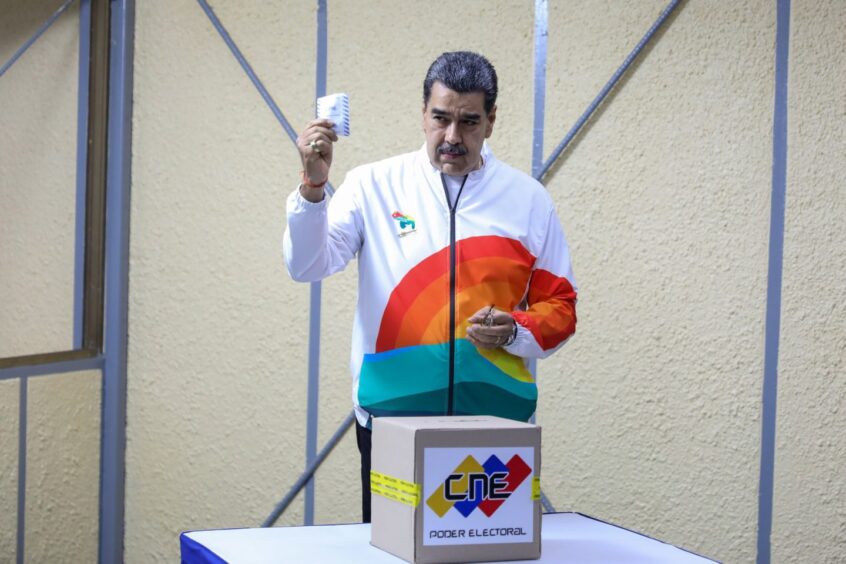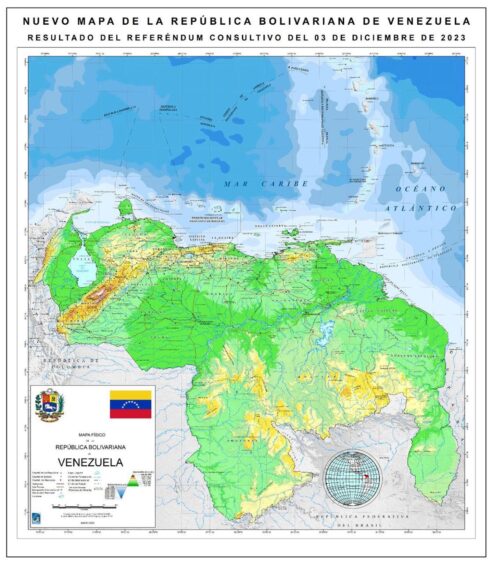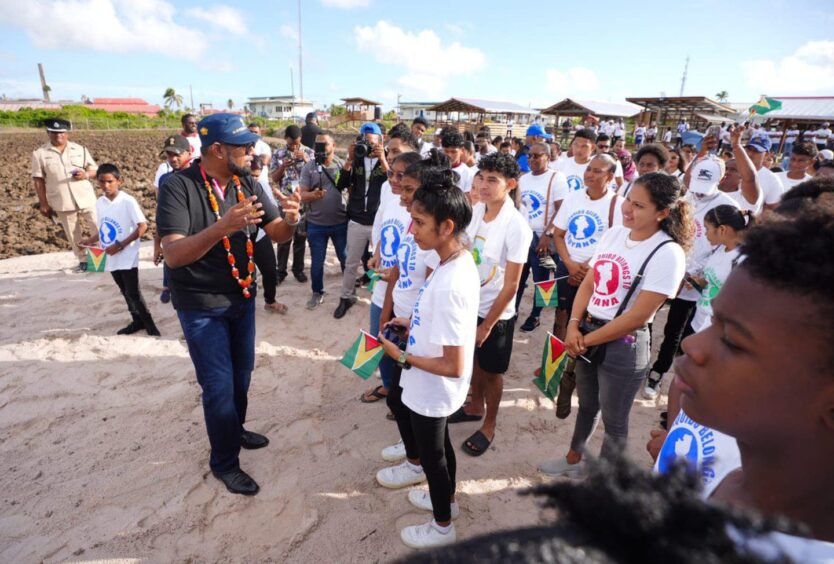
The UK has issued a warning to those visiting Guyana around the border dispute with Venezuela.
Venezuela held a referendum on December 3, asking its citizens to judge the legitimacy of its claim to Guyana’s Essequibo region. According to official results, 95% of the vote favoured retaking Essequibo.
The UK Foreign, Commonwealth & Development Office (FCDO) warned that political tensions have increased. “The security situation may deteriorate in the border areas,” it noted today in updated security notes.
Venezuelan President Nicolas Maduro has wasted little time in ramping up the rhetoric. On December 6, Maduro announced the establishment of the Guayana Esequiba defence zone. He appointed Rodríguez Cabello as the territory’s sole authority, based in the town of Tumeremo.
Maduro also created a High Commission, charged with defending Guayana Esequiba, led by Vice President Delcy Rodríguez.
The president has given companies operating in Essequibo three months to withdraw. ExxonMobil’s Stabroek block is at least partly within the Essequibo marine territory.
Maduro ordered Venezuelan companies to move ahead with natural resource exploitation in the area.
Guyanese President Dr. Mohamed Irfaan Ali visited Essequibo following the referendum, rejecting the Venezuelan claims.
The Guyana government does not expect an invasion, it has said. However, it “is prepared for the worst, building defence co-operation with its allies”.
US Secretary of State Antony Blinken held talks yesterday with the Guyanese President. Blinken expressed “the United States’ unwavering support for Guyana’s sovereignty”.
The carve up
He called for all parties to abide by the 1899 agreement, which settled the land border. The 1899 agreement marked a deal between Venezuela and the UK, which at that time controlled Guyana.
The agreement awarded the area around the Orinoco River to Venezuela, and the land east of the Essequibo River to Guyana. Guyana became a party to the agreement in 1966, after becoming independent.
US State Department spokesman Matthew Miller, in a briefing, urged “Venezuela and Guyana to continue to seek a peaceful resolution of their dispute. This is not something that will be settled by a referendum.”
The US Department of Defense carried out training in Guyana in late November.
Maduro has said the referendum marks the rejection of colonial powers’ interference. “We have taken the first steps of a new historical stage to fight for our Guayana Esequiba, for Peace and to recover what the liberators left us,” he said.
The Venezuelan president also reposted a social media comment from a legislator, describing the Guyanese president as an “ExxonMobil slave”.
The comment came in response to Ali’s visit to mountains on the border, where a Guyanese flag was raised.
The International Court of Justice (ICJ), on December 1, said Venezuela should not take any action ahead of a legal decision on the border.

 © Supplied by Venezuelan President
© Supplied by Venezuelan President © Supplied by Guyanese President D
© Supplied by Guyanese President D